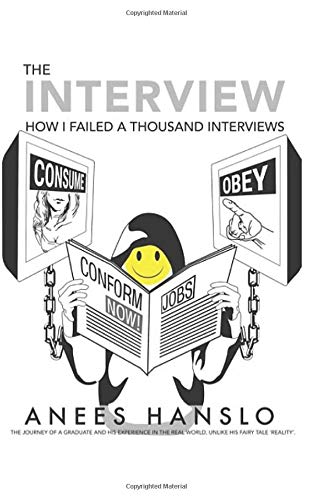In this memoir-like and uncensored read, this first-time South African author, Anees Hanslo, invites the reader to his personal journey of figuring out how to adapt in the real world while job hunting as a graduate. The title says it all; He really went to enough interviews to introspect and share his experience. You have my word too! A lot of graduates and those who went through the job seeking process would relate. I also think it would be a good read for anyone who needs a heads up on what really goes down in the modern job seeker's world.
He shares how he had to confront habits such as entitlement, competitiveness and privilege. I admire that he acknowledges his privileges and addresses factors such as inequality and historical structural issues embedded in our society that continue to put graduates from disadvantaged communities at a further disadvantage. He further self introspects on how the rejection made him question his worth, self-esteem, and career choice ; and drived the need to prove others as much as himself.
His eccentric personality cuts through as he uses humour to educate readers about some of the habits that may hinder millennial graduates from securing a job in an economy that already works against them. He discusses some of the mistakes interviewees should avoid during interviews; and how learning the “dragons” (interviewers) and their world could better chances.
Like the author, this book will challenge readers to introspect too and to question the popular culture that we consume that may shape our unrealistic perceptions of the real world. The writing is raw, and it is like living in the unfiltered thoughts of the author.
To keep the reader’s flow; I wish a whole chapter could have been dedicated for the authors random thoughts which some were insightful gems and some I would like to take him on a debate. Alternatively a section titled "notes" would have been cool too.

